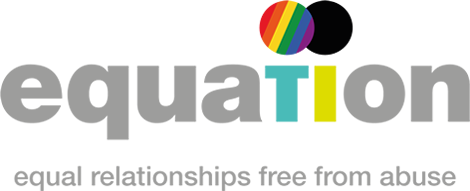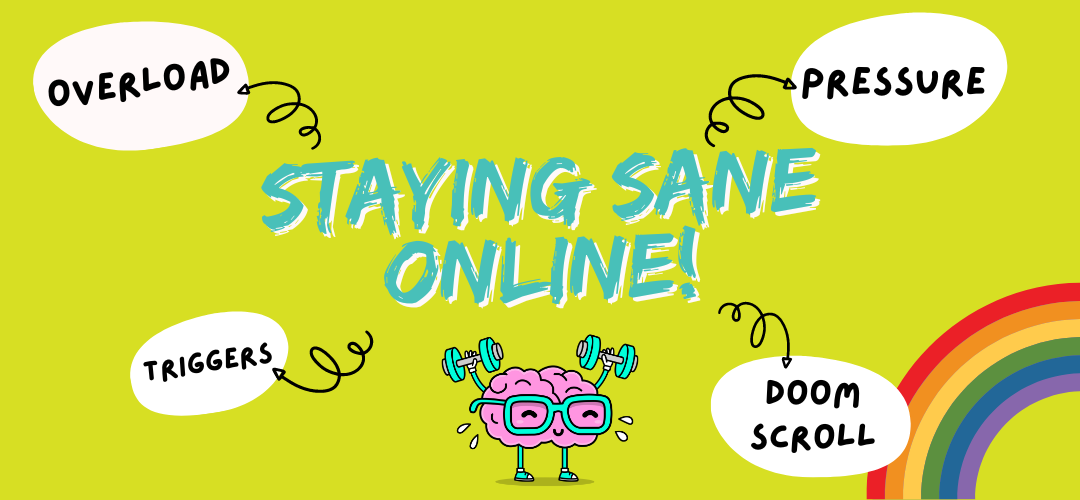The link between internet usage and mental health is well documented. Years ago, we’d have had to buy a paper to find out what was going on in the world. Or wait until the news was on the TV or radio. But today, stories like these appear in front of our eyes without warning, when we pick up a phone or head to Google.
Whilst it’s normal to want to stay informed, too much can take its toll, so it’s important to recognise this and take some positive action. Not only can social media and other internet use become addictive, but with the bombardment of information we can get triggered by an unexpected news article or post at anytime. As technology advances, it’s up to us to ensure we use technology to our advantage and not to our disadvantage.
Build a healthy relationship with digital media
Digital media is designed to distract us, reel us in and make us spend time on a post or page. If you’ve read one story about Andrew Tate or David Carrick, your feed will generate more of the same, and positive stories that might uplift you, get pushed to the side. There are ways to minimise this.
- Pick and limit your scrolling time. Scrolling through negative news stories at bedtime, just as you’re about to go to drift off isn’t a good move as it can affect your mood and quality of sleep. Pick a time of the day where you’re feeling your most resilient and do any news consumption then. And only then. Also, keep the time spent scrolling limited too. You might use a timer or apps that block social media and the news for focus like freedom. This men’s health week calls for us all to take a #screenbreak
- Take a news detox. Stepping away from all news for a week (or even a little longer) won’t leave you out of touch but will give your mind a break and free up time for you to focus on what matters most in your life.
- Choose your news sources carefully. There are some tide-turners out there, who make an effort to rebalance the scales of good and bad news. The Happy News reports on positive changes and inspiring people, whilst the The Know exists to help people start their day feeling informed (but not overwhelmed!) with a free, 5-minute read.
- Cull your feed – Go through the accounts you follow and unfollow or remove those that don’t make you feel good. You can always bookmark those you’ve removed if you want to check in on them again sometime, but they won’t be littering your feed anymore.
Self care for when it all gets too much
Feeling triggered is a central nervous system response to perceived dangers. It’s our ‘fight of flight’ response. At equation, we hear traumatic recounts of abuse all the time. So here are a few things we’ve learned along the way, in order to cope. There are some things we can do to help build up resilience over time, and responses we can use in a tight spot.
- When you’re feeling unsettled, nature is a great healer so get outside if possible. Natural light, movement, smells and quiet can help you gain perspective and boost serotonin.
- Practice mindfulness. Mediation might not be for everyone but being mindful just means having your mind on what you’re doing. Think about what makes you feel better and do those things. Spend some time being creative, moving, playing, reading or just hanging out with friends or family.
- Move – whether it’s yoga, running or going for a walk, exercise releases feel-good endorphins, and other natural brain chemicals that can enhance your sense of well-being.
- Take a breath – if you find yourself going into the fight or flight, breathing exercises like the 2-1-4-1 exercise can help fast.
- Talk to someone – don’t be afraid to consider therapy. Speaking to a therapist can clear your mind and help you understand and handle stress and negative feelings. There are skilled professionals out there who can help. But, talking to friends can really help too.
Further reading: How to calm your nervous system
Is it abuse
Not sure if what you're experiencing is abuse?
Get help
Stalking advisory service
Find out more.
How you can help
No matter how much time, money or resources you can afford to give, your support will make a difference.
£10
Give monthly
Could pay for four children
to take part in our early intervention projects
£30
Give once
Could pay for one primary school child to receive our healthy relationship education program
Support equation
Check out the other ways you can support us

